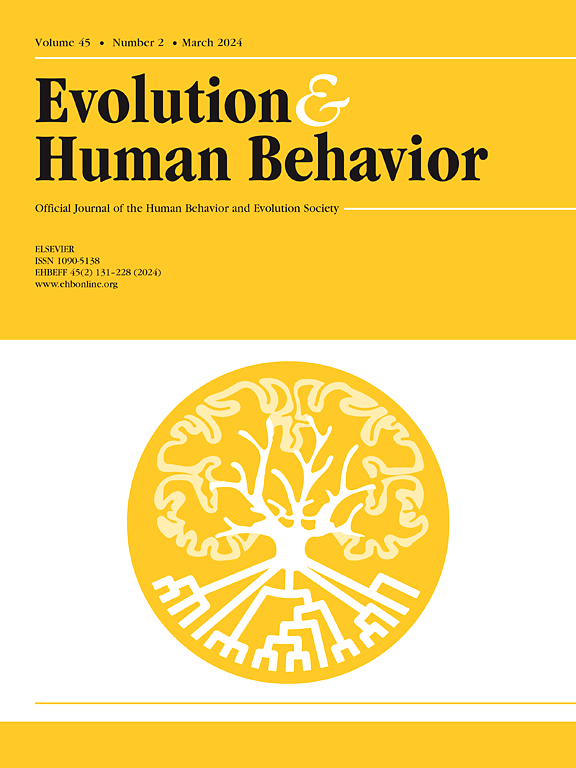跨文化证据表明,群体间冲突会提高对主导型领导者的偏好:一项25个国家的研究
IF 3.2
1区 心理学
Q1 BEHAVIORAL SCIENCES
引用次数: 0
摘要
纵观社会和历史,看似占主导地位的专制领导人经常出现,他们往往是在广泛的民众支持下上台的。一个著名的理论认为,进化的追随心理机制调节着公民的领导偏好,因此,当追随者面临像战争这样的群体间冲突时,占主导地位的个人本能地被赋予领导品质。基于这一理论的一个关键假设是,世界各地的追随者越认为当前的形势充满冲突,就越应该上调他们对主导型领导者的偏好。根据这个冲突假设,我们使用一个新的数据集生成并测试了四个具体的预测,该数据集包括居住在来自不同世界地区的25个国家的5008名参与者(由便利和大约具有代表性的国家特定样本组成)。具体而言,我们结合实验技术、有效的心理量表和群体间冲突的宏观指标来衡量人们对主导领导的偏好。在四个独立的测试中,结果广泛地支持了这样一种观点,即群体间冲突的存在会增加下属对主导型领导者的偏好。因此,我们的研究结果为适应性部落追随心理的存在提供了强有力的跨文化支持,这一发现对理解当代政治和国际关系具有各种意义。本文章由计算机程序翻译,如有差异,请以英文原文为准。
Cross-cultural evidence that intergroup conflict heightens preferences for dominant leaders: A 25-country study
Across societies and across history, seemingly dominant, authoritarian leaders have emerged frequently, often rising to power based on widespread popular support. One prominent theory holds that evolved psychological mechanisms of followership regulate citizens' leadership preferences such that dominant individuals are intuitively attributed leadership qualities when followers face intergroup conflicts like war. A key hypothesis based on this theory is that followers across the world should upregulate their preferences for dominant leaders the more they perceive the present situation as conflict-ridden. From this conflict hypothesis, we generate and test four concrete predictions using a novel dataset including 5008 participants residing in 25 countries from different world regions (consisting of a mix of convenience and approximately representative country-specific samples). Specifically, we combine experimental techniques, validated psychological scales, and macro-level indicators of intergroup conflict to gauge people's preferences for dominant leadership. Across four independent tests, results broadly support the notion that the presence of intergroup conflict increases follower preferences for dominant leaders. Thus, our results provide robust cross-cultural support for the existence of an adaptive, tribal followership psychology, a finding that has various implications for understanding contemporary politics and international relations.
求助全文
通过发布文献求助,成功后即可免费获取论文全文。
去求助
来源期刊

Evolution and Human Behavior
生物-行为科学
CiteScore
8.30
自引率
9.80%
发文量
62
审稿时长
82 days
期刊介绍:
Evolution and Human Behavior is an interdisciplinary journal, presenting research reports and theory in which evolutionary perspectives are brought to bear on the study of human behavior. It is primarily a scientific journal, but submissions from scholars in the humanities are also encouraged. Papers reporting on theoretical and empirical work on other species will be welcome if their relevance to the human animal is apparent.
 求助内容:
求助内容: 应助结果提醒方式:
应助结果提醒方式:


